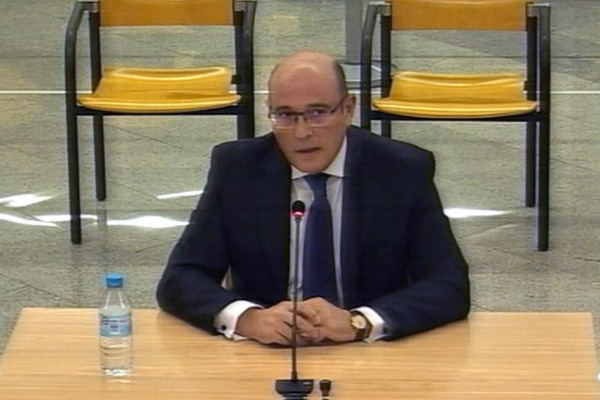I lived with passion on October 1. Every time a film arrived showing police or civil guards making their way through the mob to comply with the law and prevent voting, my face was happy. And I especially celebrated his irruption at the school in a village in Girona where the still president Puigdemont had to vote.
Throughout the day I took several walks in the city to see how the atmosphere was. In a school of the Via Augusta there were two monomials contemplating the votes. I encouraged them to act by asking them if they were not ashamed to have become a political police. They shrugged and replied, in the indifferent style of the telemarketer, that they only carried out orders. There were two policemen that day and they acted differently. I knew which one was mine.
Others also knew what was theirs. The other half applauded the mossos and clenched their teeth and fists of rage every time they saw the riot police reestablish the law in a school. The important issue is that I won. That is why Josep Lluís Trapero is sitting on the bench of the accused and Diego Pérez de los Cobos has begun to testify as a witness. If I had lost, if on October 1 I had given way to independence and not to the application of article 155, the Police and Civil Guard would be on the bench - even symbolically - and a choir of mossos would declare accusatory about their behavior.
This is the case with the coups against the democratic State. Sometimes they fail, as in the case of Catalan sedition. Other times they succeed, as in the Franco rebellion. The woe of the defeated! It can be invoked from either of the two circumstances. And it is invoked. But there is something deeply disgusting in the trial that the winning coup leaders execute on those who fulfilled the law. The terrible realization that the order that is born is founded on injustice and force. When the woe of the defeated! Compassion is invoked from the law. But also the moral calm of continuity: the law against which it was attempted is the law that judges.
The statement that Pérez de los Cobos is making could have been challenged since the victorious revolution, but hardly from the established order, which he served and serves. Although the facts would not be discussed in either of the two hypotheses: only their character. It is impossible to suggest that the mossos did more than contemplate the referendum.
Both the previous interventions that thwarted a large part of the logistics infrastructure, as well as the use of force on October 1 itself -from a decisive symbolism- were the work of the Police and the Civil Guard. In the hypothesis of the triumph of the revolution it is plausible to foresee the inflamed prose that would underline the fact: "Honor and praise those who did not want to shoot at their people."
But the revolution has lost and Pérez de los Cobos advances like a bulldozer, without the need for a prosecutor. Not without allowing, in addition, lashes like the one that humiliates the humorous hypothesis that the passivity of the mossos was also his responsibility, because after all it was the one who commanded: "Those who so much missed me then, want to hurt me more now". And the other: "If I had had command over the Mossos d'Esquadra my first decision would have been to move Trapero aside."
The only possibility of Trapero is that he receives, who would have to say it, a political sentence. It is known that the Government works tirelessly to reverse the moral vulgarity that there are winners and losers.
According to the criteria of The Trust Project
Know more- Mossos d'Esquadra
- Civil Guard
- Josep Lluís Trapero
- Catalonia
- Proced judgment
Thirst for LexVolver, Tongo
Street noise This goes to hell
Turn of the page Tsar Sanchez and the Potemkin villages

